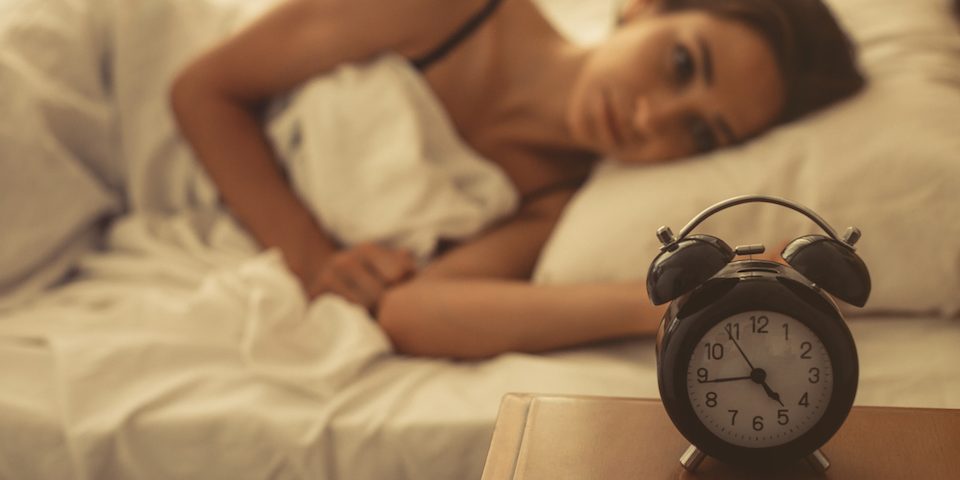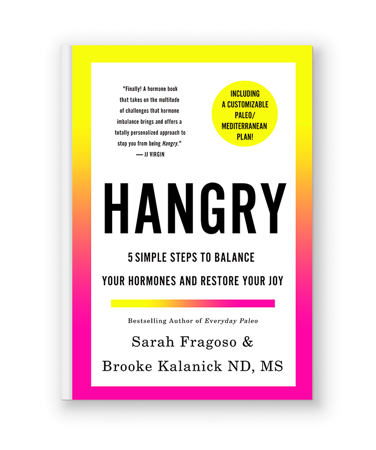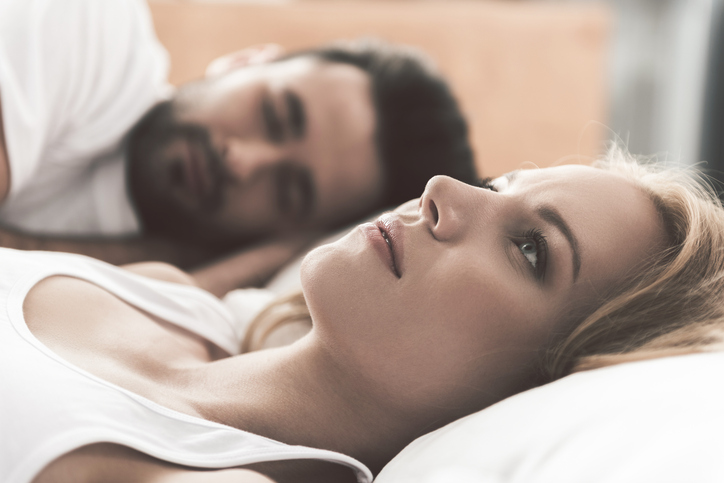
Lack of sleep plagues us busy Westerners.
The sad status quo is that we’re stressed and exhausted. We spend much of time feeling either tired and wired (can’t all asleep at night) OR simply depleted (tired, but have a hard time sleeping through the night or waking too early). Personally, sleep is the first domino to fall when I’m stressed. Once it goes down then come the cravings, moodiness, missed workouts and on down the spiral I go. Sound familiar?
Making sleep a priority is key to a BETTER body, slower aging, less feeling frazzled – and generally being nicer.
- You’ve read many a blog on “sleep hygiene” as they call it. The basics on sticking with a sleep schedule, avoid caffeine too late in the day, get a white noise machine and don’t sit up surfing the web of checking Facebook when you should be turning in.
- But they bear repeating so let’s review:
- Get to bed and wake up at the same time every day (or as close as possible). Your mind may want to sleep differently on the weekends, but your brain and body don’t know the difference between Tuesday and Sunday.
- Turn off the TV and computer at least an hour before bed. I know the lull of the TV helps many of us turn our chattering minds off, hopefully as you sort things out you’ll need this less. Just remember that light of any kind will not allow melatonin release in your brain and keep cortisol elevated (more on this below).
- Stop working at least an hour before bed. Make your to do list for tomorrow and let it go. Don’t do anything else that gets you riled up either such as talking to someone who urks you on the phone. Keep it chill…
- Avoid anything you personally find stimulating in the evening such as intense exercise, exciting reading (certain blogs, the news, even an gripping novel).
- If you are someone who really has a tough time winding down at night, try to stimulate more melatonin and less cortisol by really keeping lights low. Consider switching to low lit lamps vs. bright overheads or go full on candlelight as soon as you get home from work. Try it. It’s so mellow and lovely. If this doesn’t work for your entire family at least try candle light in the bathroom and bedroom so you can keep your bedtime rituals low light and low key.
Sleep Troubles (aka Coritsol Troubles)
Sleep problems can be more serious such as sleep apnea (although a good diet does a world of good here) or other sleep disorders, but the bulk of us are not having pathological sleep issues – we’re having blood sugar issues.
I know, it sounds a little nuts to think our blood fuel levels have much to do with our racing mind as we lay in bed stressing about the day to come, but because of the relationship between cortisol and insulin, that is indeed the issue.
Get you FREE copy of my Guide To Lab Testing & Your Hormones
This guide covers hormonal testing and thyroid patterns and will show you how to suss out the Hormonal Dealbreakers of inflammation, anemia and blood sugar problems.
Get Your Free Lab Guide HereThink of insulin and cortisol like a see saw, when one is high the other is low and on and on they go throughout the day. We think of cortisol as a bad guy, our stress hormone making us feel harried and packing on inches to our waistline. Its bad rap is only partially deserved (real trouble comes from chronic, repeated cortisol release). What cortisol does in a nutshell is raise your blood sugar.
During any type of stress: a fight with your boss, skipping breakfast, a spin class, etc. your body calls on cortisol (and adrenaline) to release stored sugar to keep you going. This is also how you can sleep through the night without having to get up and eat every few hours.
Cortisol has a natural rhythm of output: lowest at bedtime, rising throughout the night and highest around 5am. Now this is normal and many of us have abnormal secretion in terms of timing and amount of cortisol.
While cortisol’s job is to get blood sugar up, insulin’s job is to get it down. Insulin is released when we eat, more so and for longer when we eat carbohydrates. But insulin is also released when cortisol is high because if cortisol is high: blood sugar will soon be up too. This tug of war is going on in all of us all the time as our body aims to keep our blood sugar just right: not too high and not too low.
When we have insulin resistance (cells stop responding as well to insulin’s message and they stop letting glucose easily into the cell, causing us to secrete more insulin to get the message across) we tend to get higher blood sugars after we eat, insulin secretion rises and finally gets it down often overshooting the mark and then we need cortisol to come in and level us out.
You can see where continuing to tug on one side exacerbates the other. On the flipside, when we don’t have good cortisol reserves or a good cortisol response to lower blood sugars we have to rely on cortisol’s heavyweight cousin to get blood sugar up: adrenaline (aka epinephrine). Rather than having a hard time lowering blood sugar after a meal, this camp has a hard time keeping blood sugar up between meals – and throughout the night.
So what does this have to do with sleep?
Cortisol and even more so, adrenaline are stimulating hormones and if high will keep us awake.
When we’ve got insulin issues, particularly if we stress that insulin system with a big dinner or too many carbs at our last meal, it’s easy to have higher cortisol come bed time giving us a racing mind and leaving us to lay there for hours trying to fall asleep.
Periods of high stress can also create this higher cortisol at night. If it’s too high at bedtime, we can’t wind down even though we’re tired. This is that tired and wired feeling where your brain just won’t turn off.
With this logic in mind, wouldn’t lower cortisol be ideal for better sleep? Sorta. Like any hormone, cortisol’s gotta be just right. High cortisol can keep us from falling asleep, but low cortisol throughout the night will prevent us from staying asleep (normally cortisol rises throughout the night to be highest in the morning). As our adrenal glands (source of both cortisol and adrenaline) work to keep our brains, lungs and everything else going throughout the night without a food supply coming in for energy, we employ these stress hormones to keep us tapped into our sugar stores.
Order Hangry right now!
If you’ve ever felt like a Hangry B*tch and are ready to balance your hormones and restore your joy in just 5 simple steps then Hangry is for you!
GET YOUR COPY NOW
However if cortisol is low our body has to rely on adrenaline to get that stored sugar free. Adrenaline is like high octane, cortisol – it’s more stimulating and it will wake us up. Some people with this lower cortisol/lower blood sugar problem wake feeling anxious – or even hungry. Many have a really hard time going back to sleep, lying there for an hour or more unable to fall back asleep.
This can mean waking frequently in the night or waking too early (think 4am and can’t go back to sleep). This may sound a bit complicated, but the treatment is pretty straight forward: mange blood sugar throughout the day and sleep better because it helps these hormones stay in a good balance.
But while you’re working to eat regularly, ensure enough protein and veggie fiber for nice level blood sugar, avoiding sugar and alcohol (both blood sugar crashers) you need to sleep better tonight right?
Here’s a few nutrition tips for managing both sides of this troubled sleep coin:
If you have a hard time falling asleep try a lower carb dinner – think vegetables and fish or vegetables and a grass fed steak.
If you are wanting a bedtime snack, go for veggie and protein but avoid starchy or sugary carbs. Overdoing starches and sugars will stress your insulin mechanism and keep you wrestling those ruminating thoughts.
If you have a difficult time staying asleep you really should consider a bedtime snack as regular habit. I know we’ve all heard that for weight loss we don’t want to eat too late. We want to get maximal responses from leptin, growth hormone, etc. This is all true…in perfect physiology. All of these higher level hormones like leptin (a key hormone in regulating appetite and fat loss) can’t really be affected until we have a good cortisol and insulin balance.

Start there, then get into these more nitty gritty hormones. And guess what? Many of them normalize when we fix insulin and cortisol anyway.
Blood sugar balance also drives neurotransmitter levels in the brain so even if the cause of your sleep issue is low serotonin or trouble with GABA (our best calming chemical), sorting out blood sugar will help to a large degree here also.
Back to difficulty staying asleep: your bedtime snack should consist of protein, veggies for fiber and a small amount of starch or sugar (such as 1/3 cup sweet potato or a small apple).
This type of sleep issue really needs a mini-dinner closer to bedtime. Now, many people have been so stressed for so long that this insulin:cortisol relationship is really out of balance and they have trouble with both too high and too low blood sugar. This may warrant employing some adrenal support such as the herb rhodiola as well as supporting the insulin mechanism with nutrients such as chromium, magnesium and alpha lipoic acid.
Often these nutrition guidelines are enough, but sometimes our adrenal and blood sugar systems are so stressed that we need to follow these rules as well as employ natural sleep aids or even sleep medications to get a good night’s sleep. (see below for some tips of what to try for better sleep)
Think Twice Before Popping Some Melatonin
While melatonin is sold freely over the counter, don’t forget this is a hormone – thus a powerful messenger to your body. When we take melatonin our body can’t gauge how much melatonin it needs to make on its own so it slows – and eventually almost halts – its own melatonin production. Melatonin is meant to be taken just for 3 days or so – thus is ideal for travel especially across time zones – but not a good idea to take daily.
Hooked on melatonin and wondering if it’s is it so bad? Getting your own melatonin production and rhythm out of whack from taking it daily is a problem because melatonin and cortisol regulate each other.
These two hormones have opposite rhythms and timing of release (cortisol is high in the morning, lower at night and melatonin is opposite of that). As we shut down our own melatonin release we will cause cortisol abnormalities and quickly both stress and blood sugar issues arise as well. Because your hormones are a tightly knit web, when cortisol is off soon thyroid, female hormones, fat loss, immune system, etc. all get out of balance.
Boost your own melatonin production by:
- Keeping lights low in the hours before bedtime – and keep sleeping environment as dark as possible *Because serotonin is the precursor for melatonin, utilize serotonin boosting supplements like 5HTP and methylating nutrients such as B12, folic acid, B6, etc to boost serotonin.
- Address any cortisol issues (high or low) as your body makes melatonin by trying to coordinate with cortisol’s rhythm. If you’ve been taking melatonin for years you may not be able to sleep without it. If you try and just can’t manage then we know your own melatonin production and rhythms are disrupted and can assume you’ll have some cortisol and blood sugar issues because of it. In this case, you may simply need to stay on the melatonin to be able to sleep.
Note for Hashimoto’s & Other Autoimmune Patients: Cortisol and melatonin have profound effects on your immune system. Cortisol is usually deemed as “bad” while melatonin is often touted as “good” for the immune system. Good and bad are relative depending on your particular shifts towards one arm of the immune system (known as the TH1 or TH2). Everyone with an autoimmune disease has an imbalance towards TH1 or TH2 – problem is you probably don’t know which one (there are not great lab tests to discern this for you). Cortisol stimulates TH2 and melatonin stimulates TH1, so if you have a dominance of TH1 you will make your autoimmune attack on your tissues much worse by taking melatonin.
So while many natural health experts endorse use of melatonin as an “immune booster” or recommend daily use as a sleep aid – and these claims may be true, even research based – if you have autoimmunity avoid “immune boosting” or “supporting” supplements as they can increase your immune based attack (i.e. on the thyroid in Hashimoto’s). Autoimmunity puts you in a “special class”!
How to Get BETTER Sleep Tonight by Boosting Your Own Chill Chemicals (aka GABA & Serotonin)
Your main natural calming neurotransmitters are GABA and serotonin (largely because it gets converted into melatonin). Having enough activity of these guys helps you relax and unwind, countering some of the effects from cortisol abnormalities – and sometimes while you’re working on blood sugar and cortisol issues straight, you need to boost nature’s chill pills to get some zzzs.
Many herbal “bedtime” teas have GABA boosting herbs.Teas are a tried and true way to use herbs but keep in mind these are low dose – so tea may not be enough for some of you. However, it’s a simple and cozy way to turn in so try a strong tea (start with 2 bags and increase to 4 if you aren’t getting relief).
Order Hangry right now!
If you’ve ever felt like a Hangry B*tch and are ready to balance your hormones and restore your joy in just 5 simple steps then Hangry is for you!
GET YOUR COPY NOW
If you have a hard time staying asleep, struggle with lower vs. high blood sugar, try: Yogi Tea with valerian, chamomile, passionflower and skullcap as well as a bit of licorice Calm chamomile tea from Tazo – a classic. Calm has lemongrass for a different twist and a touch of licorice as well If you have a hard time falling asleep, struggle with higher blood sugar, try: Get Some ZZZs tea from Republic of Tea. Roobios base for with valerian, passionflower and chamomile. Tulsi Chamomile Tea. Tulsi is a great herb for managing high cortisol making this a great tea for trouble falling asleep.
When teas aren’t enough:
Here’s a few supplement ideas to affect these GABA & Serotonin: Herbs that boost GABA include: Valerian, Chamomile and passionflower (try Dr Brooke’s calm+sleep available soon!) GABA deficiency signs include:
- Feeling anxious or panicked or overwhelmed for no reason
- Feeling knots in stomach, dread or doom; inner tension or excitability that’s difficult to turn off
- Mind feels restless and you can’t turn it off when you want to relax
- Worry or guilt about things that didn’t used to bother you
Herbs and nutrients that boost Serotonin include: St John’s Wort, 5HTP, SAMe (try Serotone from Apex Energetics) Serotonin deficiency signs are:
- Depression that feels guilty (life isn’t so bad, you feel guilty that you aren’t more happy), the “blues”
- Losing enjoyment and pleasure from things you used to enjoy
- Feel more susceptible to pain and get angry more than before even when unprovoked
- Feel worse in grey, overcast weather
Other Relaxing Nutrients for BETTER Sleep
These three calming nutrients work for any type of sleep issue and can easily be combined with teas or herbs above.
- Magnesium: Try 300-400mg (many of us are very deficient in magnesium and need to use this dose several times per day) or try a topical magnesium such as Magnederm (use a quarter sized amount applied to a large muscle such as low back, traps/neck, quads or hamstrings – pick a tight or sore one as it helps the muscle relax).
- Inositol can be relaxing and is also great for female hormone issues of many sorts. Try 500-1000mg at bedtime.
- Theanine is the relaxing amino acid found in green tea. Try 100-300mg at bedtime (found in calm+sleep).
Nighty, night! Zzzzzz……
